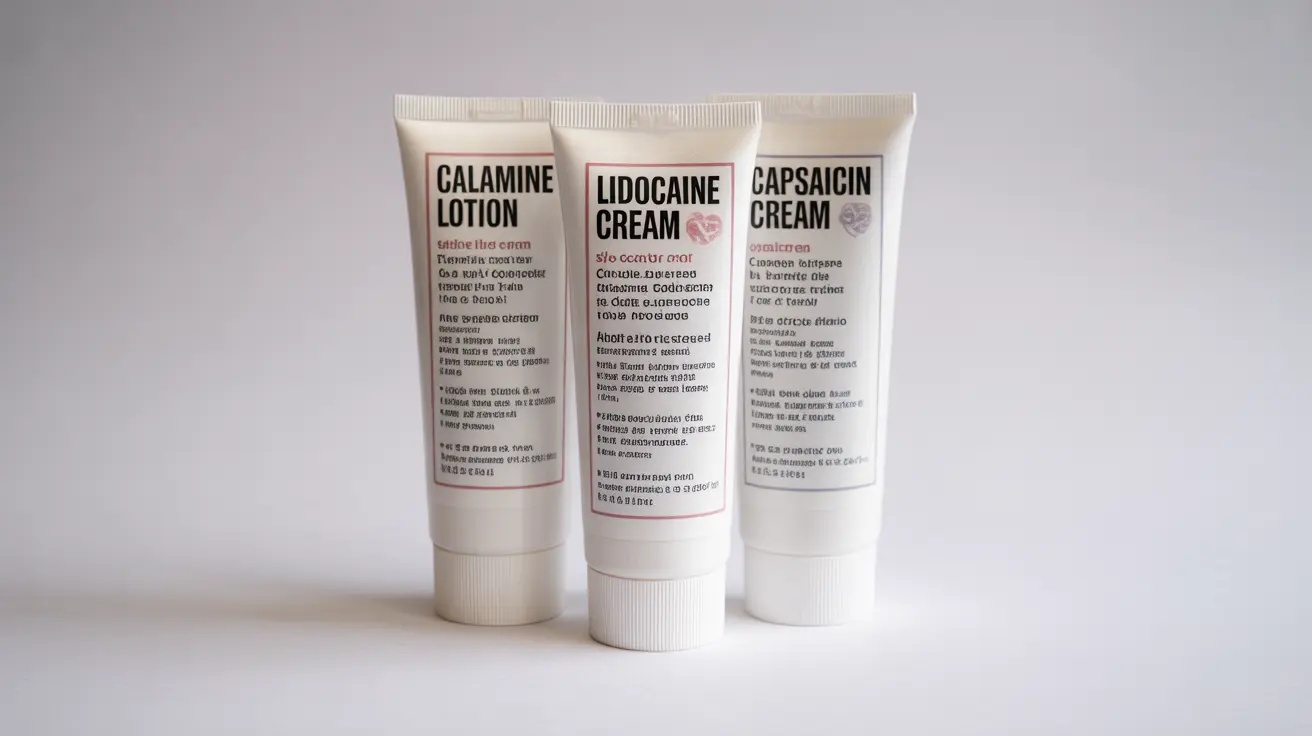Dealing with shingles can be incredibly uncomfortable, causing painful rashes and persistent itching. Finding the right over-the-counter cream can provide significant relief from these symptoms while supporting the healing process. This comprehensive guide will help you understand your options for managing shingles symptoms with topical treatments.
Understanding Shingles and Topical Relief
Before selecting a cream for shingles treatment, it's important to understand that while these products can help manage symptoms, they don't cure the underlying viral infection. Over-the-counter creams work primarily by reducing pain, inflammation, and itching associated with the shingles rash.
Types of Over-the-Counter Creams for Shingles
Calamine Lotion
Calamine lotion is a time-tested solution for skin irritation that can provide considerable relief from shingles symptoms. This pink-colored lotion contains zinc oxide and ferric oxide, which work together to soothe itchy skin and dry out oozing blisters.
Lidocaine-Based Creams
Topical lidocaine products, available in concentrations up to 4% over the counter, can temporarily numb the affected area and reduce pain. These creams are particularly effective when applied before daily activities that might aggravate the rash.
Capsaicin Cream
Derived from chili peppers, capsaicin cream works by interfering with pain signals to the brain. While initially causing a warming sensation, regular application can significantly reduce shingles-related pain over time.
Natural and Alternative Options
Colloidal Oatmeal Preparations
Products containing colloidal oatmeal can help soothe irritated skin and reduce itching. These preparations are particularly gentle and suitable for sensitive skin types.
Aloe Vera Gels
Pure aloe vera gel offers natural cooling and anti-inflammatory properties that can help ease discomfort and promote healing of the shingles rash.
Proper Application Techniques
When applying any cream for shingles, follow these essential guidelines:
- Clean the affected area gently with mild soap and water
- Pat the skin dry with a soft towel
- Apply the cream in a thin layer
- Avoid rubbing or massaging vigorously
- Wash hands thoroughly before and after application
Safety Considerations
Be aware of these important safety measures when using topical treatments:
- Never apply creams to broken blisters or open wounds
- Stop use if you experience increased irritation or allergic reactions
- Consult your healthcare provider before combining multiple products
- Follow recommended application frequencies for each product type
Frequently Asked Questions
What are the best over-the-counter creams to relieve pain and itching from shingles?
The most effective over-the-counter creams for shingles include lidocaine-based products, calamine lotion, and capsaicin cream. Each targets different symptoms: lidocaine for pain relief, calamine for itch reduction, and capsaicin for long-term pain management.
How do calamine lotion and lidocaine cream help manage shingles symptoms?
Calamine lotion provides itch relief and helps dry out blisters, while lidocaine cream temporarily numbs the affected area, reducing pain and discomfort. These products work differently but can be used as part of a comprehensive symptom management approach.
Can capsaicin cream be safely used for shingles pain, and how often should it be applied?
Yes, capsaicin cream can be safely used for shingles pain when applied 3-4 times daily. Start with a small amount to test skin sensitivity, as it may cause initial burning sensations. Regular application is necessary for optimal pain relief.
Are there any natural or commercial OTC shingles creams recommended for soothing shingles rash?
Natural options include aloe vera gel and colloidal oatmeal preparations. Commercial OTC options include calamine lotion and various anti-itch creams. These can be particularly effective when used as part of a broader treatment plan.
How should over-the-counter creams for shingles be applied to ensure safety and effectiveness?
Apply creams to clean, dry skin using gentle patting motions. Avoid rubbing vigorously, which can irritate the rash. Always wash hands before and after application, and never apply creams to open blisters or wounds. Follow product-specific instructions for application frequency.




